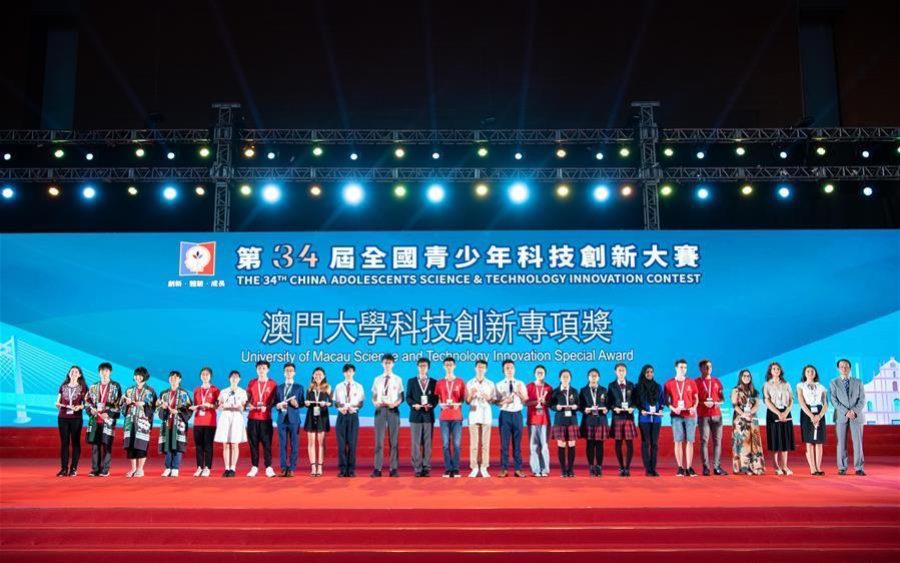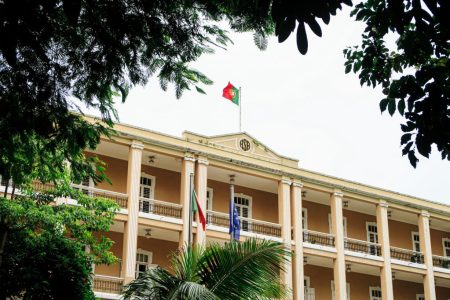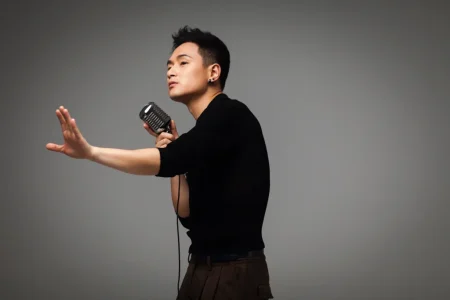For the first time, the prestigious China Adolescents Science & Technology (CAST) Innovation Contest was hosted by Macau.
The 34th China Adolescents Science & Technology (CAST) Innovation Contest, which was held for a week, ended on Thursday with a ceremony at the N8 Sport Complex on the University of Macau campus.
The contestants received their awards during the ceremony.
Acting Chief Executive Lionel Leong Vai Tac and Wan Gang, vice-chairman of the National Committee of the Chinese People’s Political Consultative Conference (CPPCC) and president of the China Association for Science and Technology, addressed the ceremony. Both expressed their expectations for young people. The ceremony also included shows by local schools to promote Chinese culture and traditions.
Leong, the government policy secretary for economy and finance, attended the ceremony on behalf of Chief Executive Fernando Chui Sai On, who was unable to attend. Wan was the central government minister of science and technology between April 2007 and March this year.
The contest is held annually.
The contest is a complex display and sharing event of innovative technology, carried out by multiple national and local associations related to education, science and youths, according to a CAST brochure. The contest began last Saturday.
The contest involved about 700 schoolchildren from 52 countries and regions, around 500 from China (mainland, Hong Kong, Macau and Taiwan) and about 200 foreign participants, according to the brochure.
There were six types of awards: Science Instructors of Distinction Awards (national and international), First, Second and Third Awards for International Projects, First and Second Awards for Students’ Projects (national) and the CAST President’s Awards (national).
According to a contest assessment work report, the quality of the projects was higher than previously, “which fully demonstrates the achievements that teenagers and their instructors have gained”.
Leong said he believed that the participation in globally prestigious science competitions will keep enhancing and developing excellent science education and increase teenagers’ creativity.
Young people also have to prepare themselves for the opportunities brought about by the Belt and Road Initiative (BRI) and the Guangdong-Hong Kong- Macau Greater Bay Area (GBA), Leong added.
Wan said he hoped that relevant institutions will strive to assist in inventing and improving new technology for teenagers’ needs and target the development of talents in the nation.
A contestant from Pui Ching Middle School (Macau), Lei In Hei, told The Macau Post Daily on Thursday that “apart from scientific knowledge, this competition also gave me an opportunity to improve my presentation skills and speak to the [jury members] in Putonghua , as we [schoolchildren] usually just present our work in classrooms and seldom speak Putonghua”.
Lei pointed out that he invented a system that sends driverless boats to pick up people trapped in flooded areas, for which he won the Second Award for Students’ Projects (national).






